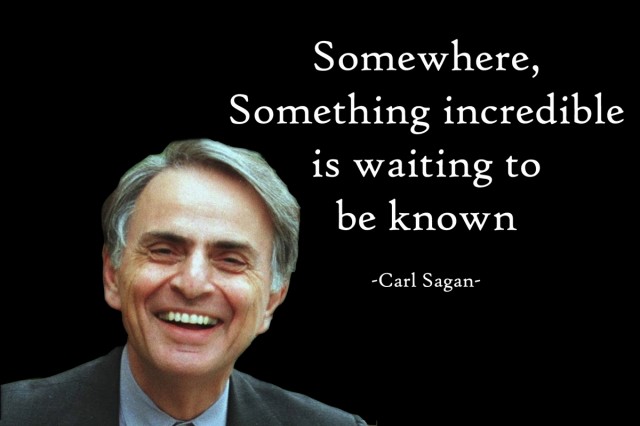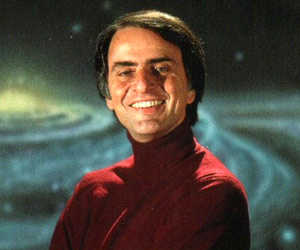 Friend of the cause and founder of Marijuana Majority, Tom Agnell, penned a great piece on Carl Sagan. Sagan, a well-known scientist and cannabis user, sadly passed away in 1996. During his life, Sagan worked for NASA as a government contractor. As such, he was forced to keep his public support of cannabis minimal for fear of legal crackdown. This was, after all, during the heydays of Nancy Reagan’s moral crusade.
Friend of the cause and founder of Marijuana Majority, Tom Agnell, penned a great piece on Carl Sagan. Sagan, a well-known scientist and cannabis user, sadly passed away in 1996. During his life, Sagan worked for NASA as a government contractor. As such, he was forced to keep his public support of cannabis minimal for fear of legal crackdown. This was, after all, during the heydays of Nancy Reagan’s moral crusade.
However, thanks to a collection of some 600,000 of Sagan’s documents that the Library of Congress recently made available to the public, we are getting a deeper look into the thoughts of not just a strong voice in the pro-cannabis movement, but one of the brightest minds of our time.
 Agnell provides a lot of context and shows that Sagan had much to say about the lunacy of the war on drugs, and he was even concerned about the state of our judicial/prison complex. He was very troubled by our nation’s propensity to incarcerate non-violent offenders and the racial disparity evinced therein.
Agnell provides a lot of context and shows that Sagan had much to say about the lunacy of the war on drugs, and he was even concerned about the state of our judicial/prison complex. He was very troubled by our nation’s propensity to incarcerate non-violent offenders and the racial disparity evinced therein.
Sagan’s widow and scientific partner, Ann Druyan, stated that, though Sagan’s work with NASA prohibited him from supporting cannabis legalization, he worked hard behind the scenes to advance the cause.
As you might expect from a mind like Sagan’s, one of his biggest gripes with the criminalization of cannabis was the shoddy science upon which it was based. Specifically, he believed the anti-drug movement “routinely made gross distortions of the scientific facts.” I cannot agree more.
Such misinformation prompted Sagan to write a letter suggesting a series of questions that should be asked when discussing the criminalization of drugs. It was Sagan’s (justifiable) fear that the conservative values of politicians would only allow for conservative questions when unilaterally designating a substance as criminal.
Some of my favorites from Sagan’s suggested questions:
- How many people are killed or impaired in America each year from tobacco and alcohol compared to other drugs?
- Why are all “drugs” lumped together in American rhetoric and public policy questions?
- What’s the difference between physical and “psychological” addiction, and how is my attachment to music or my wife different from “psychological addiction?”
- Why are drugs, including hallucinogenic drugs, so widely distributed among the cultures of the Earth and so prevalent as sacraments in the world’s religions?
- Why is [drug use] rejected on moral grounds, and is there something intrinsically immoral about feeling good by taking a molecule? Do we ordinarily feel good because our bodies have generated molecules?
- What does it take to apply the scientific method to such questions rather than the repetition of conventional wisdom?
The article is full of a ton of great quotes. I encourage you to read through it. I will leave you with my favorite quote from the piece, from the lips of Ann Druyan, Sagan’s widow:
“We smoked the way other American families would have wine with dinner. For us, it was our sacrament. It was something that made a great life sweeter in every possible way.”
Amen, Carl.









